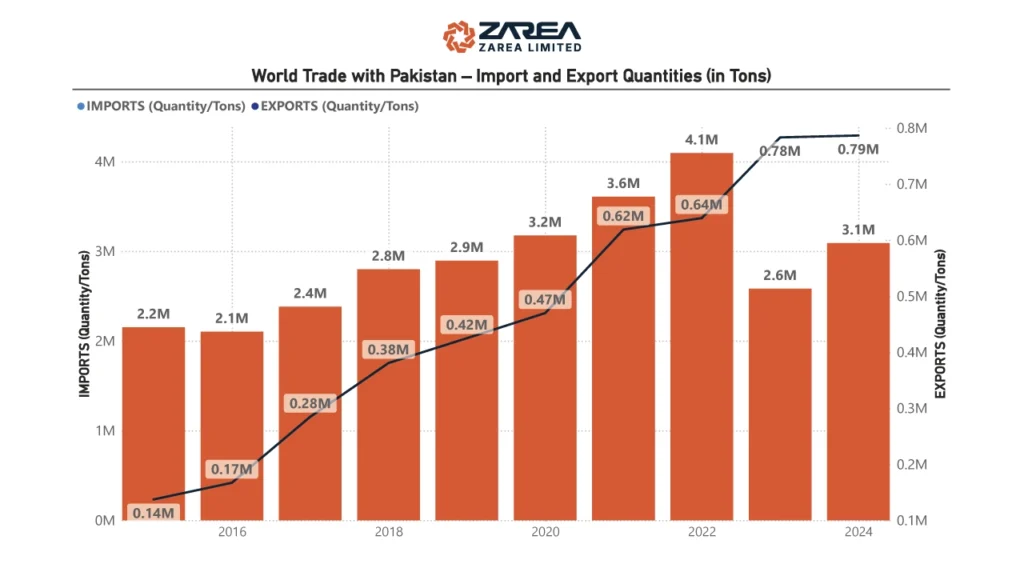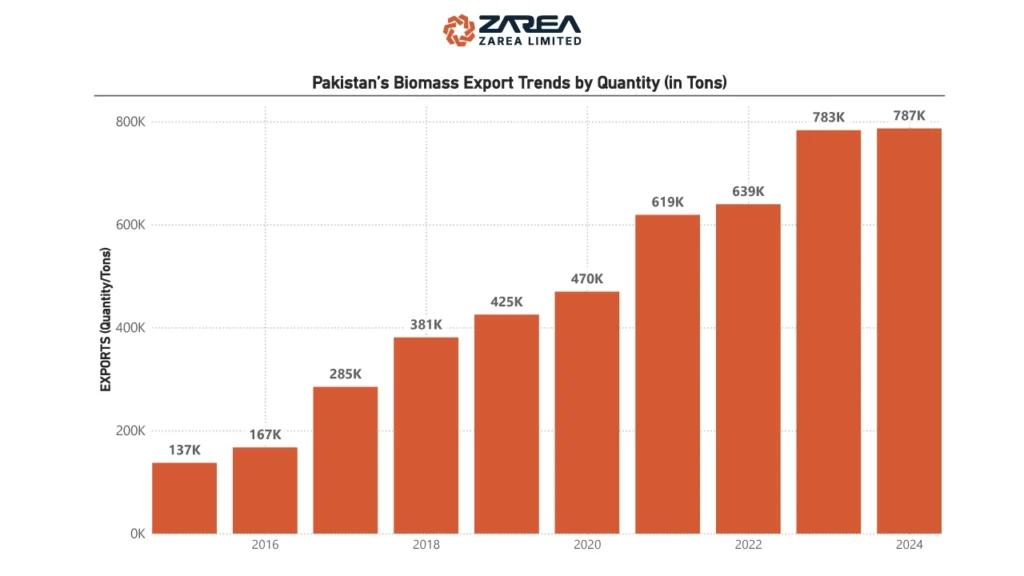Introduction – Biomass in Pakistan:
Renewable energy sources development is now essential rather than optional. This is because Pakistan continues to negotiate a difficult energy environment these days. As we know biomass plays a vital role in Pakistan among all of them. That’s why it’s providing a locally accessible, sustainable, and financially feasible route to energy resilience. Recent statistics and events on the ground support the predictions of numerous experts: Pakistan’s biomass industry is expanding.
There is more to this surge than meets the eye. The figures show that biomass is quickly emerging as a key component of Pakistan’s green energy transition, as does the countrywide activity.
What is Biomass?
Any converted organic material is called biomass that is obtained from plants or animals and can easily be transformed into energy. Any organic component of municipal solid trash as well as wood debris, animal manure, and agricultural residues is included in it. Some of the processes like anaerobic digestion, gasification, and combustion successfully turn these materials into heat, electricity, and biofuels.
to view product listings, make bulk purchases, and find the best offers. Go to Zarea now! It is the largest business-to-business (B2B) commodities marketplace in Pakistan and is setting the standard for future commodity distribution and trade in the nation.
The Reasons Behind Pakistan’s Growing Biomass:
Pakistan has a significant edge in biomass energy generation these days. This is because of its distinct geographical and agricultural characteristics. Meanwhile Pakistan produces an enormous amount of crop leftovers due to its over 60% population working in agriculture so far. According to records, rice husks, cotton stalks, wheat straw, and sugarcane bagasse are major contributors to biomass. These agricultural biomass products are significantly used as important fuel sources all over Pakistan. That’s why these biomass products are not wasted or turned into pollution through open burning.

Key Drivers Behind the Biomass Boom:
- Abundance in Agriculture: Each year, millions of tonnes of biomass residues are produced.
- Energy Deficit: Biomass offers a dependable substitute in the face of ongoing power outages.
- Environmental Objectives: Cutting air pollution and carbon emissions has become a top national objective.
- Government Support: Renewable energy is starting to be favoured by incentives and policy frameworks.
- Interest from the Private Sector: Funding for biogas and biomass power plant projects is increasing.
The Current Status of Biomass in Action:
Pakistan has already produced electricity from biomass and achieved this significant golden milestone so far. The following figures demonstrate quick growth:
- Biomass-based power plants produce more than 50 megawatts (MW) of electricity nationwide these days.
- More than 5,000 biogas units have been erected only for domestic energy use. Most of them operate in rural regions.
- Sugar mills make a substantial contribution to the local economy. Especially in Punjab and Sindh, bagasse as a by-product is used in the processing of sugar cane and generates electricity.
- Biomass is evolving into a commonplace component of the energy mix according to the figures. That’s why it’s no longer a niche solution.
- The Pakistan Council for Renewable Energy Technologies’ (PCRET) research indicates an assumption. They define Pakistan has more than 50,000 GWh of biomass energy potential per year.
These numbers highlight why biomass is no longer a niche solution so far. In result it has become a part of the mainstream of the energy mix.

Biomass Applications in Pakistan:
Power plants using biomass
In specially constructed plants, waste from forestry and agriculture is burned to generate power. Cogeneration technologies have been implemented by certain sugar mills to effectively supply heat and power.
Production of Biogas
Biodigesters convert manure and organic waste into methane-rich biogas, which is used for heating, cooking, and power generation.
Combined Heat and Power (CHP)
For greater energy efficiency, combined heat and power (CHP) systems that use biomass are installed in industrial areas.
Heating with Biomass
Biomass boilers, pellet heaters, and wood stoves are used in small businesses and rural locations to heat spaces and water.
Benefits to the Economy and Environment:
- Job Creation: Biomass projects create jobs in rural areas whether it be from feedstock collection or plant operation.
- Carbon Reduction: According to studies, biomass energy generates a lot less CO₂ as compared to fossil fuel sources.
- Waste Management: Biomass aids in sustainable industrial management of municipal, and agricultural waste.
- Rural Development: Decentralised biomass energy helps with clean, reasonably priced electricity that’s provided to off-grid populations.
Obstacles to Surmount:
Even with its quick expansion, there are still a number of obstacles to further scaling biomass energy:
- Lack of efficient feedstock supply chains
- Need for technological upgrades in conversion equipment
- Preventing land degradation through sustainable harvesting
- Rural communities lack technical training and awareness.
- High upfront expenses associated with biomass infrastructure
These obstacles can be overcome with focused legislation, public-private collaborations, and educational initiatives.
The Road Ahead – Biomass and Pakistan’s Energy Future:
Pakistan’s Alternative and Renewable Energy Policy 2019 sets the goal to achieve 30% renewable energy on the national grid by 2030. Biomass is well-positioned to contribute significantly to achieving this goal due to its local availability and dependability.
In all industrial zones the momentum is undeniable. These milestones were achieved through biomass plants, bagasse-based power in sugar mills, and biogas in rural homes. In Pakistan, biomass is not only a promise but a tested and expanding reality thanks to sustained investments and policy support.

Final Thoughts:
Pakistan is showing that creativity and regional solutions can lead the way as the world shifts to more environmentally friendly energy sources. Biomass has the potential to revolutionise how the country powers its homes, businesses, and future if it is supported and used sustainably.
Statistics show that Pakistan’s biomass industry is, in fact, flourishing.

































